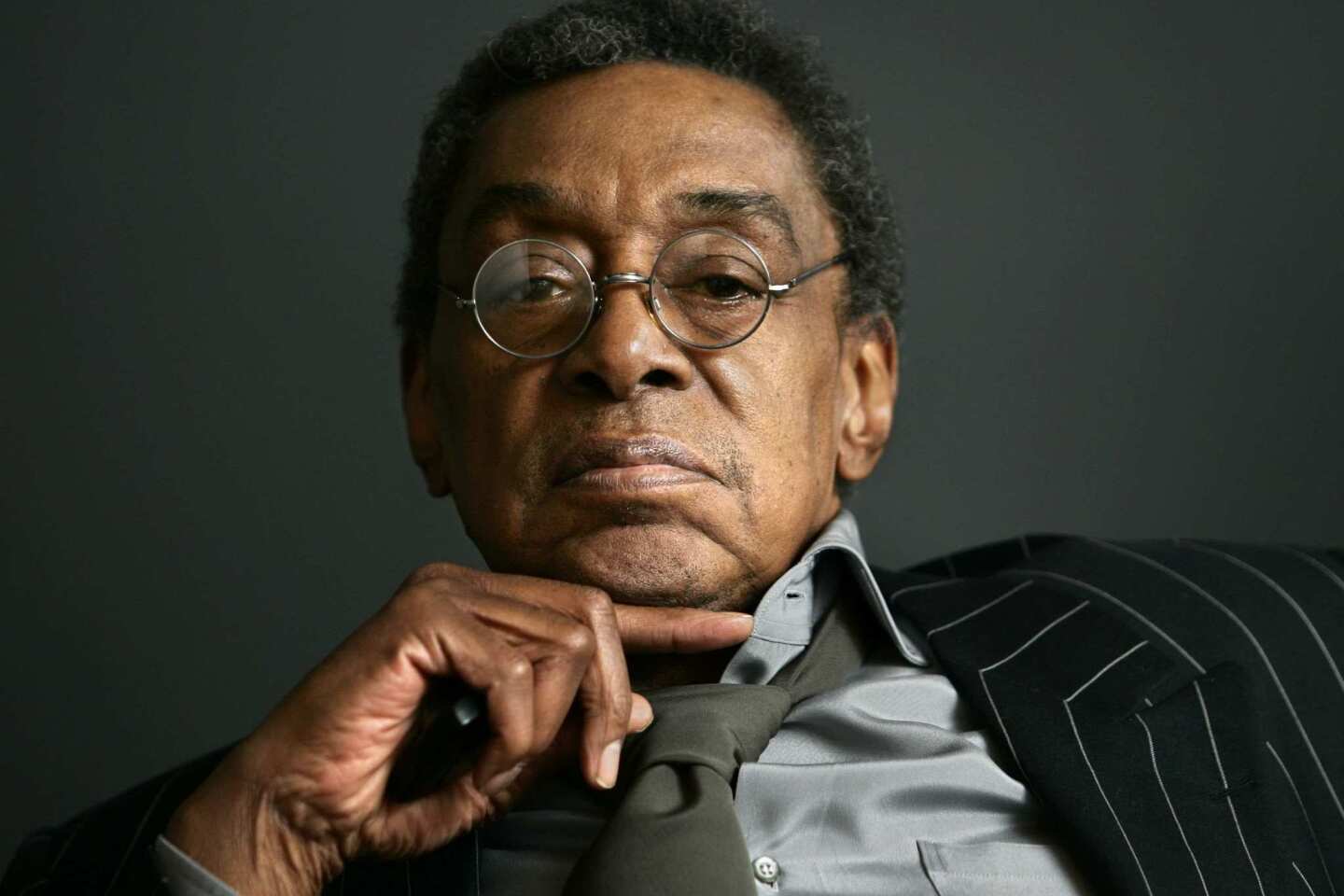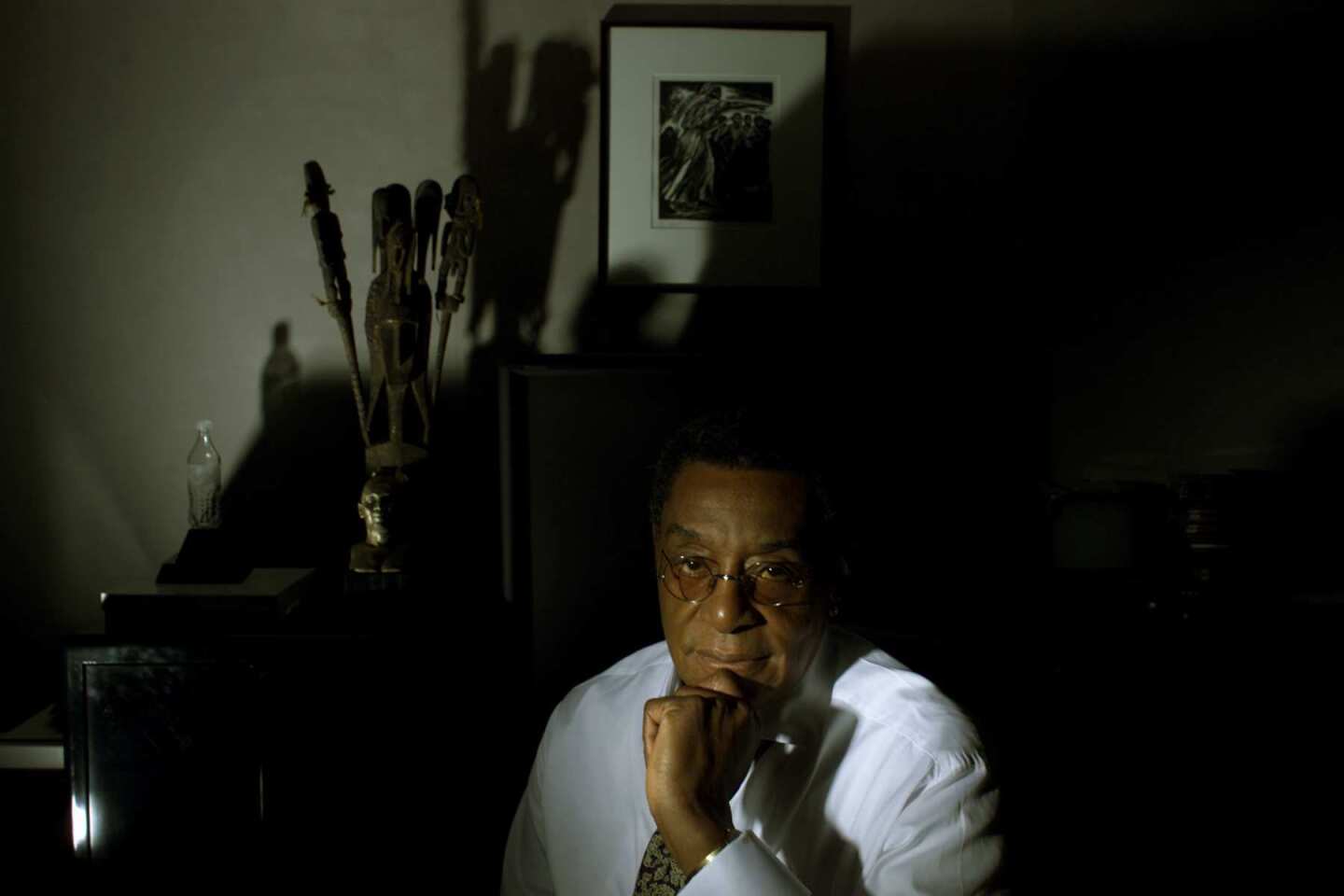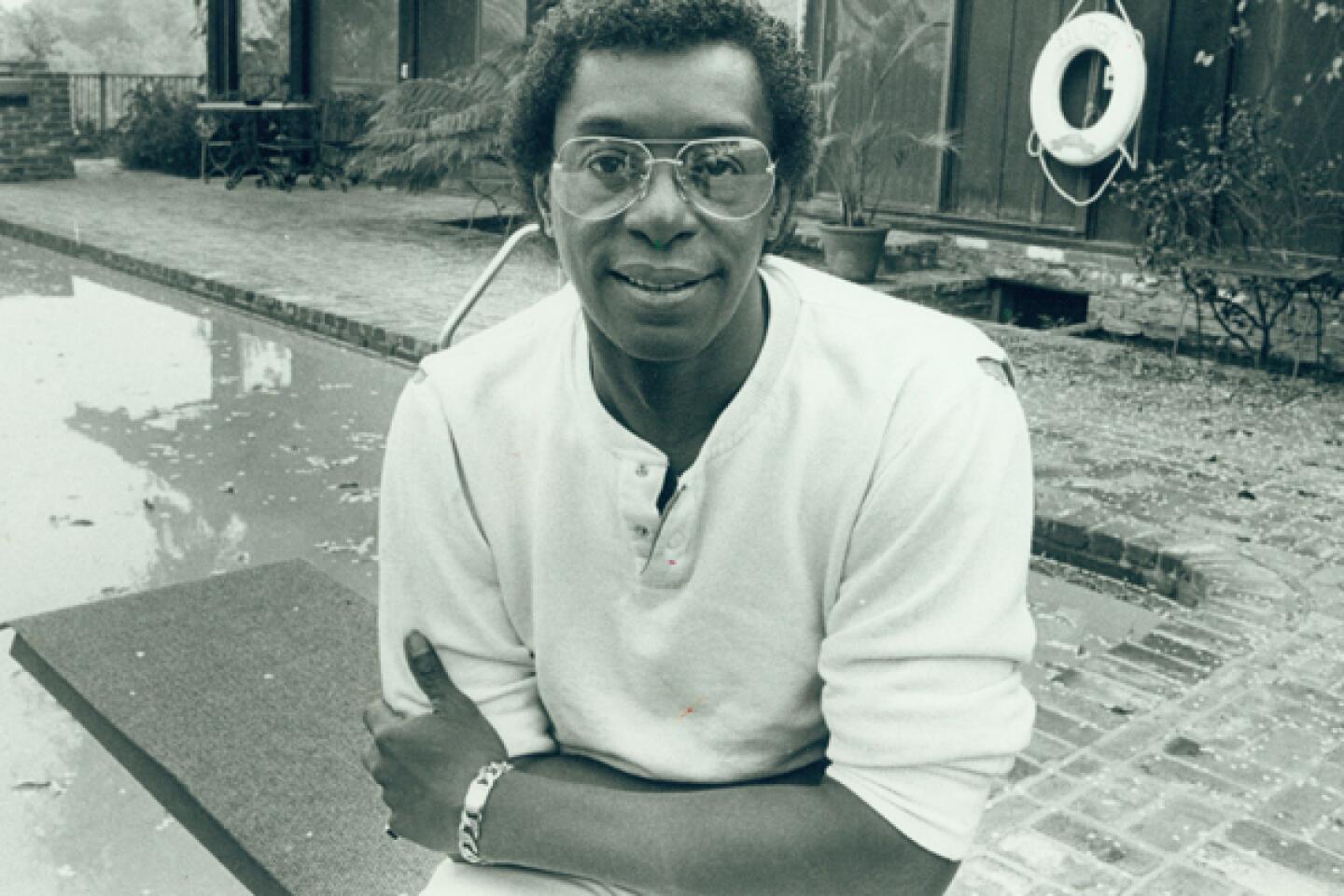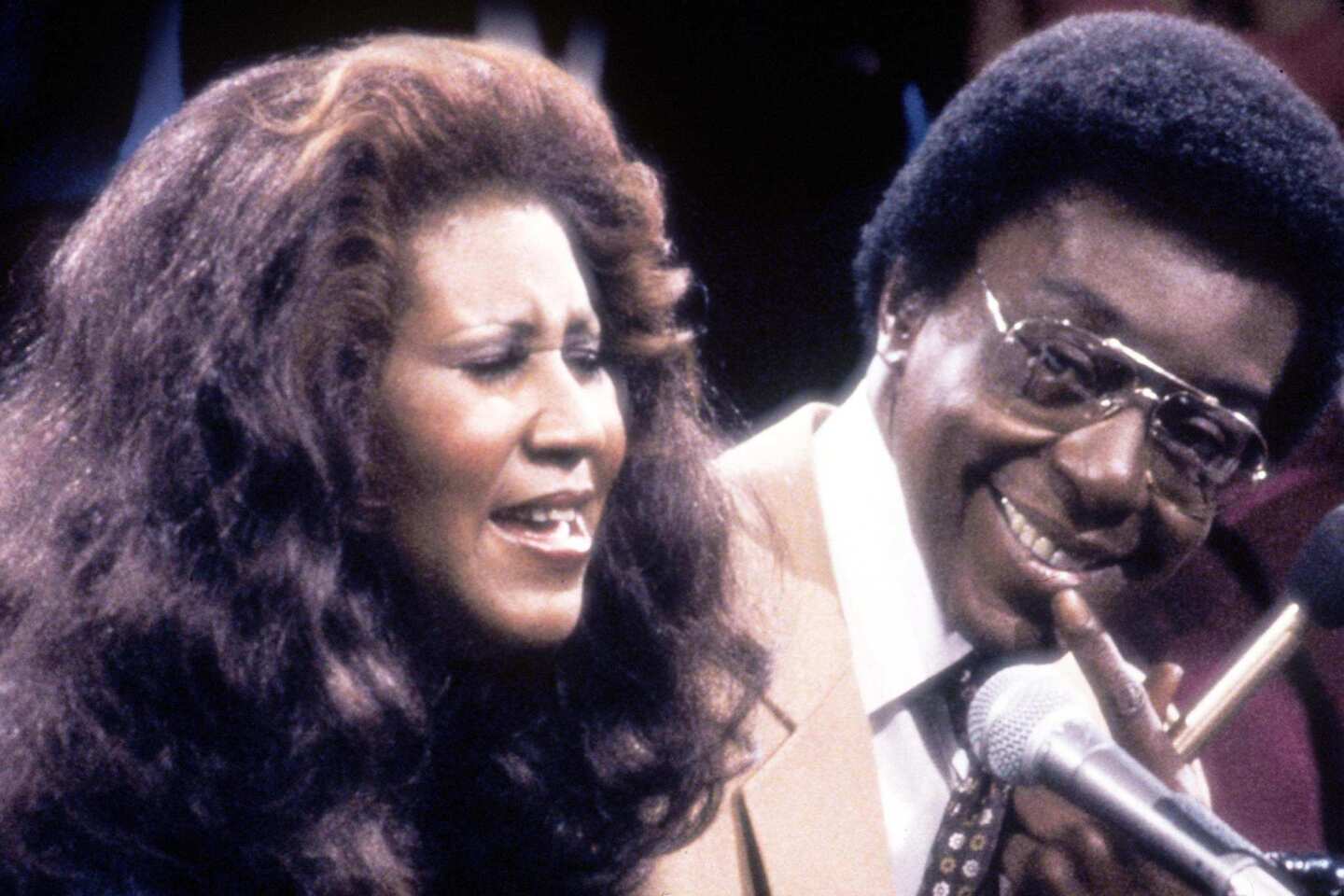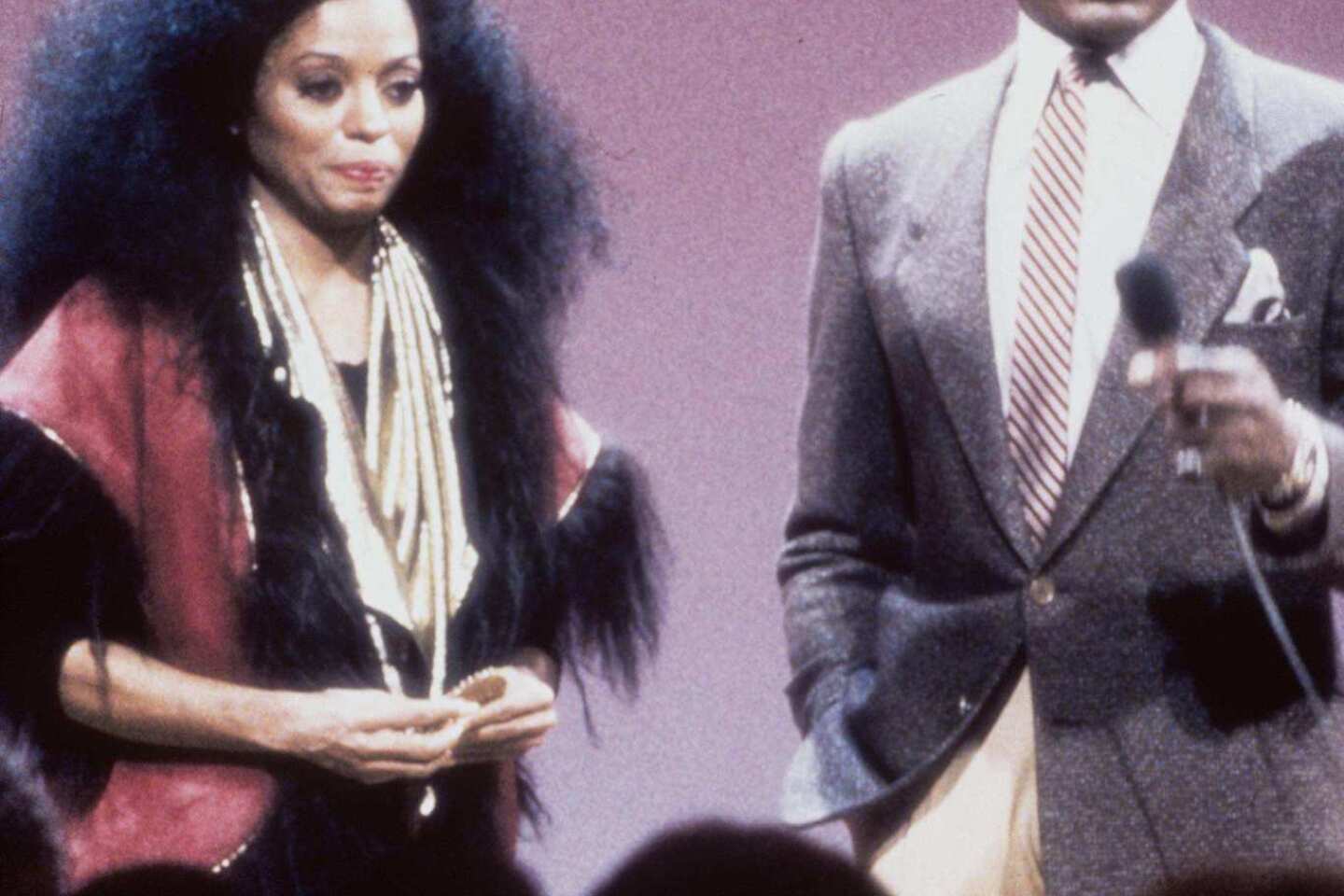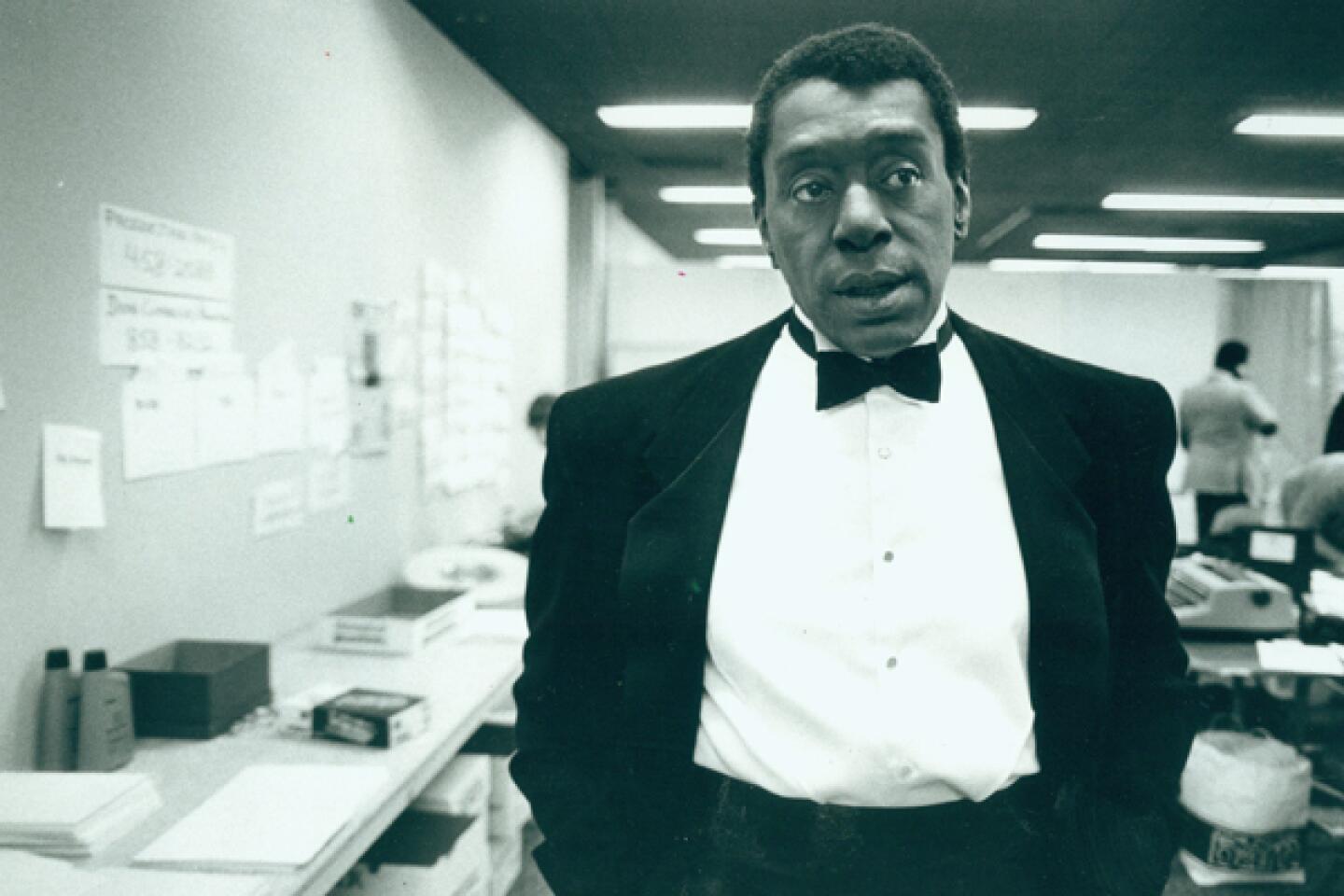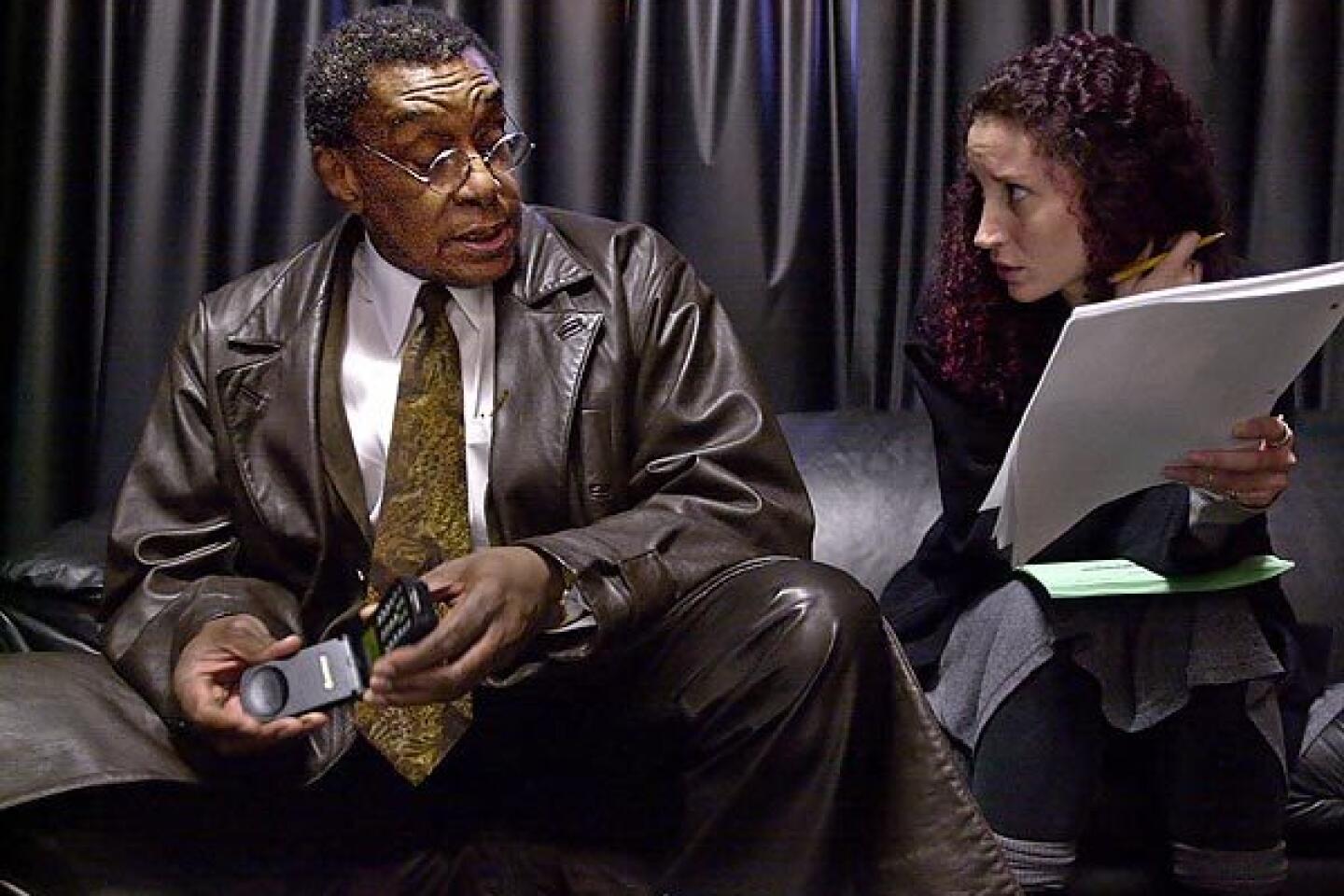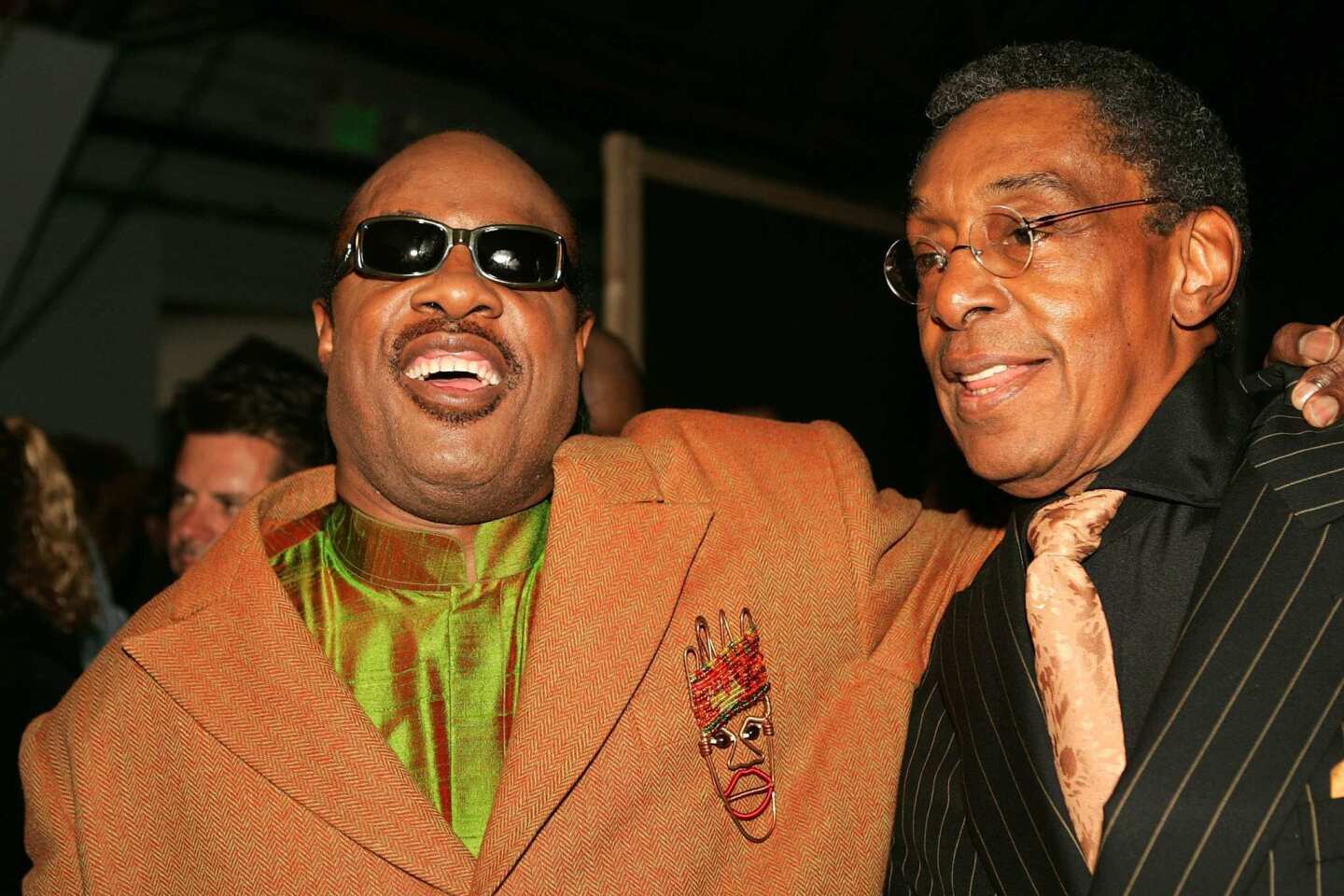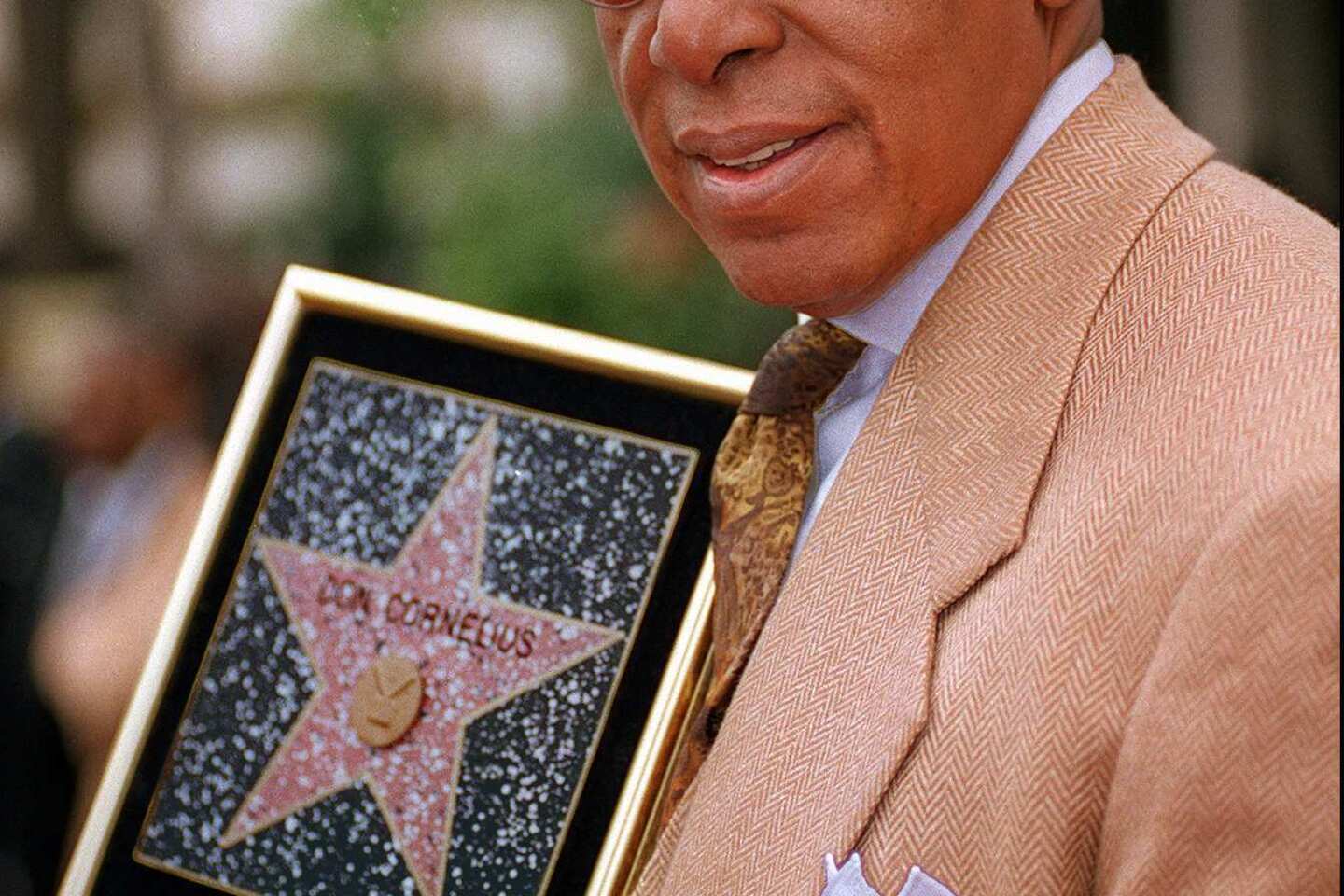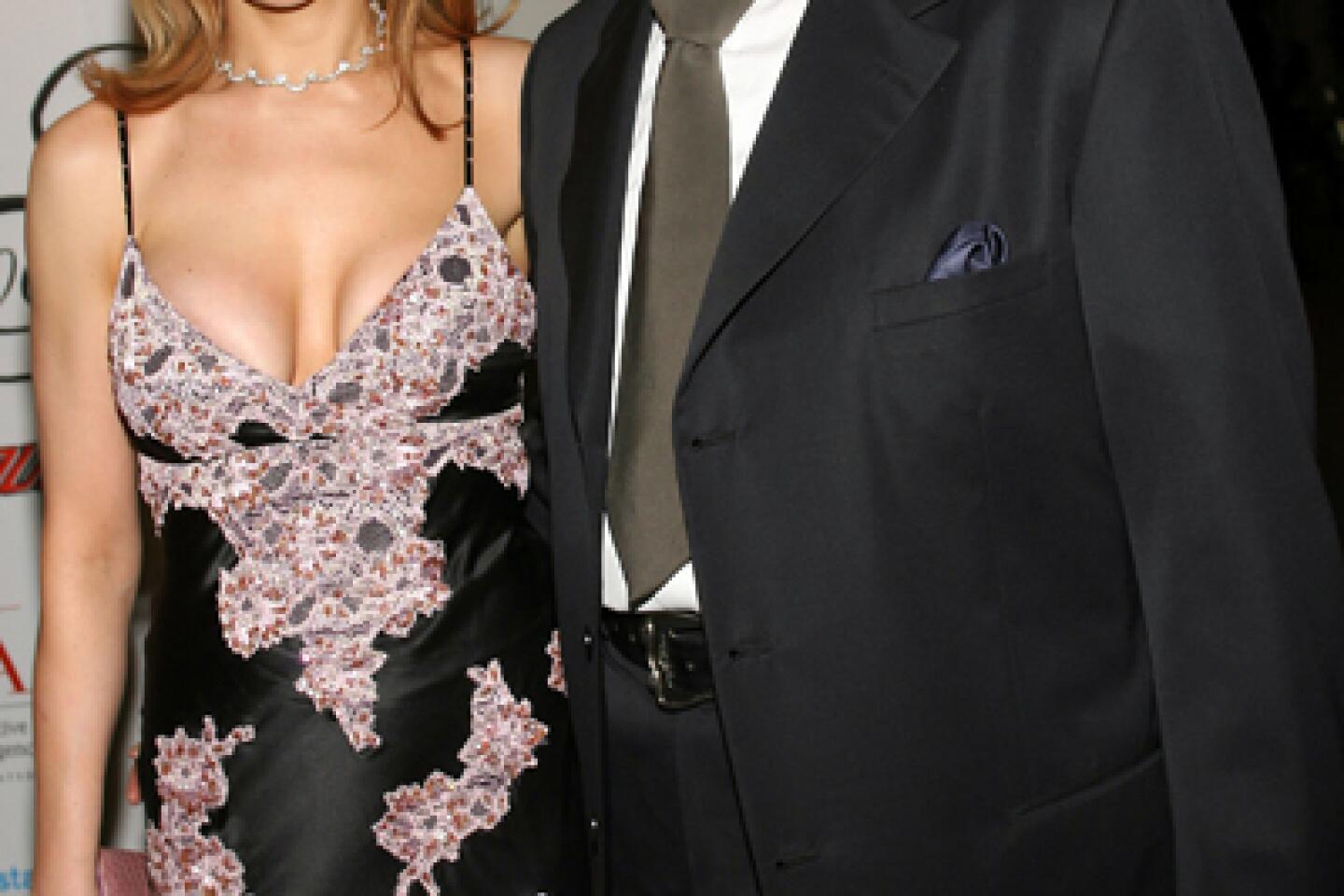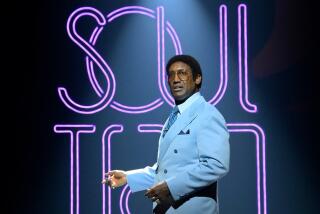Don Cornelius dies at 75; creator of ‘Soul Train’
- Share via
The idea was simple — but groundbreaking: Create a live showcase for black music, modeled on “American Bandstand.”
Don Cornelius pulled $400 from his own pocket to launch the dance show on a local Chicago TV station in 1970. As host and executive producer of “Soul Train,” he was soon at the throttle of a nationally syndicated television institution that was the first dance show to cater to the musical tastes of black teenagers and also helped bring black music, dance, fashion and style to mainstream America.
In the process of presenting the soul, funk and R&B of the day, the Afro-haired, dapper Cornelius became a TV icon, his sonorous baritone welcoming viewers to “the hippest trip in America.”
Cornelius, 75, was pronounced dead at Cedars-Sinai Medical Center in Los Angeles Wednesday after a family member found him in his home in Encino with a gunshot wound to his head, according to law enforcement sources. The wound appeared to be self-inflicted, but the death was being investigated by police. Friends say he had been in poor health.
On Wednesday, those who knew Cornelius recalled his impact on American culture.
“Don was a visionary and giant in our business,” producer and composer Quincy Jones said in a statement. “Before MTV there was ‘Soul Train’; that will be the great legacy of Don Cornelius. His contributions to television, music and our culture as a whole will never be matched.”
Aretha Franklin said Cornelius “united the young adult community single-handedly and globally.”
“With the inception of ‘Soul Train,’ a young, progressive brother set the pace and worldwide standard for young aspiring African American men and entrepreneurs in TV — out of Chicago,” Franklin, who appeared on the show, said in a statement. “He transcended barriers among young adults. They became one.”
“Soul Train,” which moved to Los Angeles and entered national syndication in 1971, featured other legendary artists, including James Brown, Marvin Gaye, the Jackson 5 and Barry White.
With its catchy introduction featuring an animated, psychedelic smoke-spewing locomotive, “Soul Train” became destination TV for teenagers across America in the ‘70s.
Magic Johnson was one of them. “Every Saturday morning I looked forward to watching ‘Soul Train,’ as did millions of other people,” Johnson, chairman of Soul Train Holdings, said in a statement. “‘Soul Train’ taught the world how to dance! Don’s contribution to us all is immeasurable.”
Beyond the music and the artists featured on “Soul Train,” much of its popularity was attributed to the young dancers on the show.
Cornelius’ teen dance party featured the talents of some of the best young dancers in the area, and one of the show’s most popular features was the “Soul Train” line, with dancers going down the line and showing off their best moves.
Among those who went on to later fame are actress Rosie Perez, singer Jody Watley, rapper MC Hammer and Jeffrey Daniel, who taught Michael Jackson how to moonwalk.
In his 1996 book “Funk: The Music, the People and the Rhythm of the One,” Rickey Vincent called “Soul Train” the “most undiluted showcase of black sexuality in the country” and “a cultural mecca for the entire decade of the ‘70s.”
That there was a need for such a show was obvious to Cornelius, who had launched his career in radio only a few years before the show’s debut.
“It was a period when television was a very white medium, and that didn’t make sense to me,” he told Billboard magazine in 2005, the year he received the Trustees Award from the Recording Academy for lasting contributions to culture as the creator of “Soul Train.”
“I wanted to bring more of our African American entertainment to not only the black [niche] viewers but to the crossover viewers as well,” he said.
Robert Santelli, executive producer of the Grammy Museum in Los Angeles, told The Times on Wednesday that “‘Soul Train’ was to soul music what ‘American Bandstand’ was to early rock ‘n’ roll, and Don Cornelius was like a black Dick Clark.
“He and his program almost single-handedly made sure that soul music had a presence on TV. For many years, it impacted black culture, black pop culture and black pop music. Few people came close to what he accomplished in those years.”
Santelli added that “it also was an entry into black pop music for white kids. You could be living in Des Moines or in Montana and you could connect with what was happening in urban areas. It was an important portal for a lot of white kids who were very interested in black culture.”
The show’s “overall sense of blackness at this particular time was groundbreaking,” Todd Boyd, a USC professor of critical studies, told The Times on Wednesday. Cornelius “effectively capitalized on the changes that took place in America socially and politically and culturally in the 1960s” in the next decade by giving national exposure to acts that previously were seen only in segregated settings.
“Soul Train,” which became the longest-running first-run nationally syndicated show in TV history, spawned offshoots such as the Soul Train Music Awards, the Soul Train Lady of Soul Awards and the Soul Train Comedy Awards.
Cornelius, who also co-founded Soul Train Records in 1975, signed off each “Soul Train” show with his signature, “I’m Don Cornelius, and as always in parting, we wish you love, peace and soul!”
In 1993, after more than two decades of changing musical styles and fashions, he stepped down as host. The show ended production in 2006.
Cornelius was born in Chicago on Sept. 27, 1936, and grew up on the South Side. After graduating from DuSable High School in 1954, he served a stint in the Marines. He sold tires, cars and insurance before taking a course in broadcasting in 1966.
He launched his career as a substitute disc jockey and news announcer on WVON-AM in Chicago and was moonlighting as a sports anchor on “A Black View of the News” on WCIU-TV when he pitched the station’s owners the idea of a dance show. The first “Soul Train” aired live and in black and white on WCIU-TV on Aug. 17, 1970.
Overnight, he told the Washington Post in 1995, “everyone in Chicago knew who I was. The show was the talk of the town.”
Cornelius, who has a star on the Hollywood Walk of Fame, was inducted into the Broadcasting Hall of Fame in 1995.
With his first wife, Delores, Cornelius had two sons, Anthony and Raymond. His second marriage, to Russian model Viktoria Chapman, ended in divorce after he pleaded no contest to misdemeanor spousal battery in 2009.
Information on survivors was not immediately available.
Los Angeles Times staff writers Valerie J. Nelson and Andrew Blankstein contributed to this report.
More to Read
Start your day right
Sign up for Essential California for the L.A. Times biggest news, features and recommendations in your inbox six days a week.
You may occasionally receive promotional content from the Los Angeles Times.
